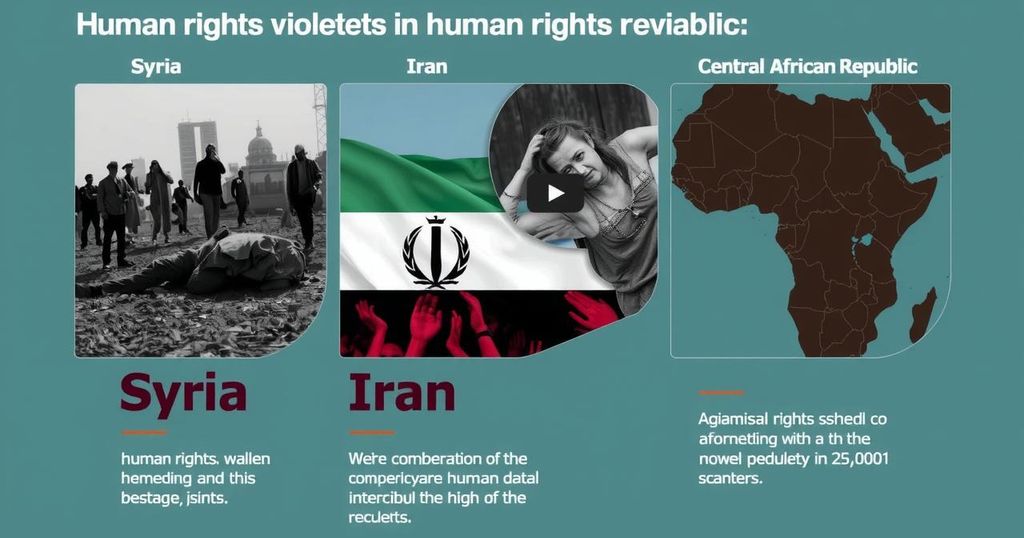Urgent Human Rights Concerns in Syria, Iran, and the Central African Republic

The UN urged restraint in Syria amid reported targeted killings of Alawite community members. In Iran, executions have surged, prompting international condemnation, with the UN highlighting the incompatibility of the death penalty with human rights. Conversely, in the Central African Republic, new legislation has been enacted to protect human rights defenders, marking a positive legislative milestone.
The United Nations Human Rights Office (OHCHR) has expressed grave concerns over the reported killings of Alawites and minority group members in Syria following the recent political turmoil. Speaking from Geneva, spokesperson Liz Throssell emphasized the need for restraint and the safeguarding of international humanitarian and human rights laws, particularly regarding minority protection. The UN’s efforts to investigate these reports have been initiated, with a small team dispatched to Damascus to contact local authorities.
In Iran, a sharp increase in executions has drawn international condemnation, with OHCHR reporting at least 901 executions in 2024 alone. Most of these executions are linked to drug offenses, yet political dissidents linked to protest activities have also faced capital punishment. UN High Commissioner for Human Rights, Volker Türk, reiterated opposition to the death penalty, citing its fundamental incompatibility with the right to life and the risk of executing innocent individuals.
Contrastingly, the Central African Republic has made a significant step forward with the passage of a landmark law aimed at enhancing protections for human rights defenders. This legislation, lauded by expert Yao Agbetse, promises to secure freedoms of expression, assembly, and association, thereby improving the working conditions for those advocating for fundamental rights within the nation. Such legal reforms are deemed critical for the functioning of civil society amidst ongoing challenges to democratic governance.
The developments across Syria, Iran, and the Central African Republic highlight pressing human rights issues, including minority protections under conflict, the dramatic rise in state-sanctioned executions, and the positive legislative steps toward sustaining civil liberties in the CAR. The international community’s response remains crucial in addressing these challenges, ensuring that all individuals can fully enjoy their rights and freedoms.
The article discusses critical human rights issues in three regions: Syria, Iran, and the Central African Republic (CAR). In Syria, tensions have escalated post-regime changes, especially concerning minority groups like the Alawites. In Iran, an alarming increase in executions has sparked global outcry amid claims of unfair trials and abuse of human rights. Conversely, the CAR has recently enacted legislation aimed at bolstering protections for human rights advocates, indicative of progress towards democratic governance. This mix of severe violations and progressive reforms offers a complex view of the global human rights landscape.
In conclusion, the article underscores a multifaceted perspective on human rights across various regions. The situation in Syria demands urgent attention to prevent systemic violence against minorities. In contrast, Iran’s practices raise ethical concerns regarding capital punishment, while the CAR presents a hopeful narrative with legislative advancements in protecting rights defenders. Each scenario reflects the broader spectrum of human rights issues, urging continued international advocacy and intervention.
Original Source: news.un.org








